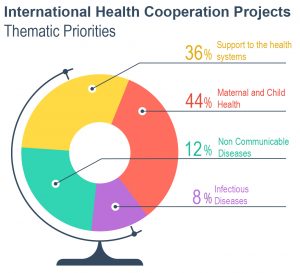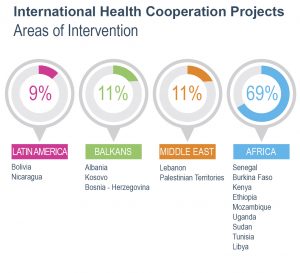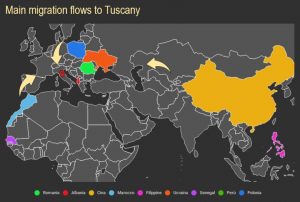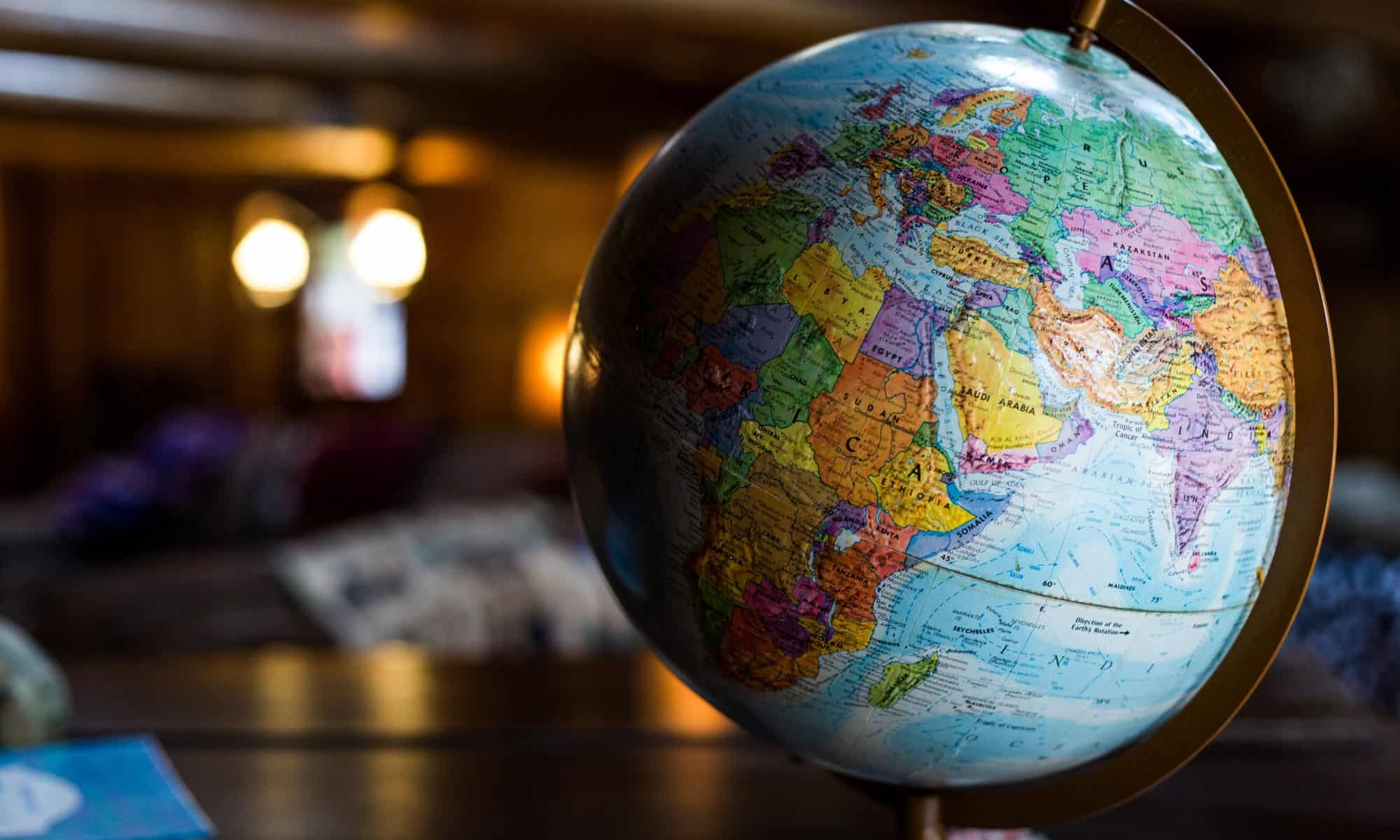The Global Health Centre (GHC) facilitates the development of synergies among different groups of professionals working in the Tuscany Region in the fields of international health cooperation and migrants’ health. It participates in the development of information and training activities (pre-service and in-service) on its thematic areas. Through collaboration with national and international networks of experts in different disciplines, the GHC aims to stimulate debate, reflection, and analysis in the global health field, clinical and epidemiological research, the management of healthcare services, and health policies. The GHC also provides technical assistance in project management, promotes the creation of international agreements in the health sector, and prepares reports and recommendations to promote greater awareness of global health issues. More information about the GHC can be found at: www.centrosaluteglobale.eu
By Maria José Caldés Pinilla and Michele De Luca

Since 2005, Tuscany has been active with over 317 International Health Cooperation projects and over 500 health professionals involved

The IHC strategy prioritises the achievement of the health targets of SDG 3 (Ensure healthy lives and promote wellbeing for all at all ages) and those related to maternal and child health. It also aims to strengthen the fight against emerging and re-emerging infectious diseasesand takes into account the growing pressure on health system from non-communicable diseases (NCDs) It emphasises the need for multisectoral prevention policies to address common risk factors and social and environmental determinants. The IHC strategy supports the enhancement ofs fragile health systems , particularly in the Mediterranean Area, through support for sustainable health financing based on solidarity, training of competent and motivated personnel, and the development of reliable health information systems. The strategy also underlines the importance of human capital accumulation, and giving a central place to individual welfare and health rights. Meeting the SDGs goals will make it possible to act on migration, which all too often penalises the countries of origin and proves harrowing for the people concerned, sometimes making their integration more difficult.

Through its IHC projects, the GHC provides the Tuscan Health System’s staff with the opportunity to participate in international health cooperation projects and encourages scientific and academic cooperation and partnerships across all developing countries. Such international relationships contribute to the creation of quality healthcare in neighbouring countries, and supports the use of the Tuscany model based notably on mutual financing of health coverage, excellence in health professionals, equitable access to healthcare, and the right to health.
Through the Global Health Center the Tuscany Region wants to promote equity and appropriateness in the offer of healthcare to the migrant population.

The large share of migrants of migrants in the Tuscan population, of which 54% are women, is taken into account when considering how to address issues such as the provision of services and health resources, (and the partial or incorrect knowledge of these), and the right to health.
Since the Italian Health System is decentralised, the regions play an important role in the application of the national laws and policies. In order to guarantee the proper application of national indications on migrants’ health in the regional territory and ensure their right to access to health services, the Region of Tuscany has assigned the main role of coordination of the different Tuscan Health Units work on migrant health to the GHC. The GHC coordinates a regional of Local Health Units and Areas, and provides continuous training and update on migrants’ health and related legal framework. The representatives in the network are responsible for connecting their institutions with the Regional level on issues concerning migrants’ health. This ensures the coordination and harmonisation of procedures, approaches, and policies.
The Health Centre also organises health screening for migrants at arrival. At present, every Local Health Unit is autonomous in deciding which department is responsible, what kind of screening carry out, which medical examinat ions to conduct and when. This leads to significant differences within the Region. Therefore, the GHC has started a work of consultation among the Local Health Units in order to define the main criteria that should guide the screening and to harmonise the procedures in the Region following the most recent national guidelines.
The GHC continually organises training in the field of migrants’ health, both for socio-health staff and for third sector organisations. In particular, in 2018 the GHC will organise a comprehensive regional training programme on migrants’ health (with a particular focus on mental health) for family doctors, paediatricians, social health staff and local organisation involved in migrants’ support and reception activities.
[1] In Italy, a child born to one Italian and one non-Italian parent only acquires (dual) Italian nationality if that parent recognises the relationship.


